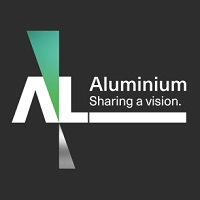
Latest NEWS
Forging the Future of Aluminium: Unveiling the Top 5 Key Trends at Aluminium Düsseldorf 2024

Lightweight and High-Strength Aluminium Alloys in Aluminium Düsseldorf 2024
Lightweight and High-Strength Aluminium Alloys in Aluminium Düsseldorf 2024

One of the key trends that will be unveiled at Aluminium Düsseldorf 2024 is the development of new lightweight aluminium alloys. As industries strive to reduce weight and increase fuel efficiency, the demand for lightweight materials has never been higher. Aluminium, with its low density and excellent strength-to-weight ratio, is the perfect solution. Manufacturers are constantly pushing the boundaries of alloy development to create even lighter and stronger materials.
In recent years, there has been a significant emphasis on the use of high-strength aluminium alloys. These alloys offer exceptional mechanical properties, allowing for the creation of components that can withstand high loads and extreme conditions. At Aluminium Düsseldorf 2024, attendees can expect to see the latest advancements in high-strength aluminium alloys, which are revolutionizing industries such as aerospace, automotive, and construction.
One of the key drivers behind the development of lightweight and high-strength aluminium alloys is the growing demand for sustainable materials. As the world becomes more conscious of the environmental impact of various industries, there is a need for materials that can reduce energy consumption and carbon emissions. Aluminium, being highly recyclable and energy-efficient to produce, is a frontrunner in the quest for sustainable materials. The advancements in lightweight and high-strength aluminium alloys showcased at Aluminium Düsseldorf 2024 will undoubtedly contribute to a greener future.
Another important aspect of lightweight and high-strength aluminium alloys is their impact on design possibilities. With the ability to create complex shapes and intricate structures, these alloys open up new avenues for innovation and creativity. At Aluminium Düsseldorf 2024, attendees will witness the unveiling of groundbreaking designs that leverage the unique properties of lightweight and high-strength aluminium alloys. From sleek and aerodynamic automotive components to lightweight and durable building materials, the possibilities are endless.
Furthermore, the development of lightweight and high-strength aluminium alloys is not limited to traditional manufacturing methods. Additive manufacturing, also known as 3D printing, has emerged as a game-changer in the production of complex components. This technology allows for the creation of intricate geometries that were previously impossible to achieve. At Aluminium Düsseldorf 2024, visitors can expect to see the latest advancements in additive manufacturing techniques for lightweight and high-strength aluminium alloys, paving the way for a new era of manufacturing possibilities.
In conclusion, the focus on lightweight and high-strength aluminium alloys at Aluminium Düsseldorf 2024 highlights the industry’s commitment to innovation and sustainability. The development of new alloys, driven by the demand for lightweight materials, is revolutionizing various sectors. These alloys not only offer exceptional mechanical properties but also contribute to a greener future. The design possibilities enabled by lightweight and high-strength aluminium alloys are pushing the boundaries of creativity and opening up new avenues for innovation. With the emergence of additive manufacturing, the potential for these alloys is further expanded. Aluminium Düsseldorf 2024 promises to be a platform for unveiling the top trends in lightweight and high-strength aluminium alloys, shaping the future of the aluminium industry.
Sustainable Aluminium Production and Recycling at Aluminium Düsseldorf 2024
Sustainable Aluminium Production and Recycling at Aluminium Düsseldorf 2024
Aluminium is a versatile and widely used metal that plays a crucial role in various industries, including automotive, construction, and packaging. As the demand for aluminium continues to grow, it is essential to focus on sustainable production and recycling methods to ensure a greener and more environmentally friendly future. At Aluminium Düsseldorf 2024, the world’s leading trade fair for the aluminium industry, several key trends in sustainable aluminium production and recycling were unveiled.
One of the top trends highlighted at Aluminium Düsseldorf 2024 is the increasing use of renewable energy sources in aluminium production. Traditional aluminium smelting processes are energy-intensive and contribute to greenhouse gas emissions. However, many companies are now investing in renewable energy technologies, such as solar and wind power, to power their aluminium production facilities. This shift towards renewable energy not only reduces carbon emissions but also helps to lower production costs in the long run.
Another important trend showcased at Aluminium Düsseldorf 2024 is the development of innovative recycling technologies. Aluminium is highly recyclable, with nearly 75% of all aluminium ever produced still in use today. However, traditional recycling methods often involve melting down the metal, which requires a significant amount of energy. To address this issue, researchers and industry experts are exploring new recycling techniques that can recover aluminium from various waste streams without the need for extensive energy consumption.
One such technique gaining traction is the use of advanced sorting technologies. These technologies employ sensors and artificial intelligence to identify and separate different types of aluminium scrap, making the recycling process more efficient and cost-effective. By improving the sorting process, more aluminium can be recovered and reused, reducing the need for primary aluminium production and minimizing the environmental impact.
In addition to technological advancements, Aluminium Düsseldorf 2024 also highlighted the importance of collaboration and partnerships in achieving sustainable aluminium production and recycling. Many companies are now working together to develop innovative solutions and share best practices. By pooling their resources and expertise, these collaborations can drive the adoption of sustainable practices across the industry and accelerate the transition towards a circular economy.
Furthermore, the fair showcased the growing demand for recycled aluminium products. Consumers are becoming increasingly conscious of the environmental impact of their purchasing decisions and are actively seeking out products made from recycled materials. This shift in consumer behavior is driving companies to incorporate more recycled aluminium into their products, creating a market for sustainable and eco-friendly alternatives.
In conclusion, Aluminium Düsseldorf 2024 unveiled several key trends in sustainable aluminium production and recycling. From the use of renewable energy sources to innovative recycling technologies, the industry is making significant strides towards a greener and more sustainable future. Collaboration and partnerships are also playing a crucial role in driving these advancements. As the demand for aluminium continues to rise, it is essential for the industry to prioritize sustainability and embrace these trends to forge a brighter future for aluminium production and recycling.
Advanced Aluminium Forming and Joining Techniques showcased at Aluminium Düsseldorf 2024
Aluminium Düsseldorf 2024, one of the most prestigious events in the aluminium industry, promises to be a platform for unveiling the top five key trends that will shape the future of aluminium. Among these trends, advanced aluminium forming and joining techniques take center stage, showcasing the industry’s commitment to innovation and pushing the boundaries of what is possible with this versatile metal.
One of the key trends that will be showcased at Aluminium Düsseldorf 2024 is the development of advanced forming techniques. Manufacturers are constantly seeking new ways to shape aluminium into complex and intricate designs, and this event will highlight the latest advancements in this field. From hydroforming to superplastic forming, attendees will have the opportunity to witness firsthand the cutting-edge techniques that are revolutionizing the industry.
In addition to advanced forming techniques, Aluminium Düsseldorf 2024 will also showcase the latest developments in joining techniques. As aluminium becomes increasingly popular in various industries, the need for efficient and reliable joining methods has become paramount. Welding, adhesive bonding, and mechanical joining are just a few of the techniques that will be on display, demonstrating the industry’s commitment to finding innovative solutions for joining aluminium components.
One of the most exciting trends in advanced aluminium forming and joining techniques is the integration of artificial intelligence (AI) and robotics. AI-powered robots are being used to automate and optimize the forming and joining processes, resulting in increased efficiency and precision. This trend will be highlighted at Aluminium Düsseldorf 2024, with live demonstrations showcasing how AI and robotics are transforming the way aluminium is formed and joined.
Another trend that will be unveiled at Aluminium Düsseldorf 2024 is the use of additive manufacturing in aluminium forming and joining. Additive manufacturing, also known as 3D printing, has gained significant traction in recent years, and the aluminium industry is no exception. This technology allows for the creation of complex geometries that were previously impossible to achieve, opening up new possibilities for designers and engineers. Attendees will have the opportunity to see firsthand how additive manufacturing is being integrated into the aluminium forming and joining processes.
Lastly, Aluminium Düsseldorf 2024 will showcase the industry’s commitment to sustainability in aluminium forming and joining. As the world becomes increasingly aware of the environmental impact of manufacturing processes, the aluminium industry is taking steps to reduce its carbon footprint. From the use of recycled aluminium to the development of energy-efficient forming and joining techniques, attendees will witness the industry’s dedication to sustainable practices.
In conclusion, Aluminium Düsseldorf 2024 promises to be a platform for unveiling the top five key trends in the aluminium industry. Advanced aluminium forming and joining techniques will take center stage, showcasing the industry’s commitment to innovation and pushing the boundaries of what is possible with this versatile metal. From the integration of AI and robotics to the use of additive manufacturing, attendees will have the opportunity to witness firsthand the cutting-edge techniques that are shaping the future of aluminium. Additionally, the industry’s commitment to sustainability will be on display, highlighting the efforts being made to reduce the environmental impact of aluminium forming and joining processes.
Aluminium’s Role in the Automotive and Aerospace Industries at Aluminium Düsseldorf 2024
Aluminium has long been a crucial material in the automotive and aerospace industries, and its importance is only set to grow in the coming years. As we look ahead to Aluminium Düsseldorf 2024, it is clear that this event will play a pivotal role in shaping the future of aluminium in these industries. In this article, we will explore the top five key trends that will be unveiled at the event, focusing specifically on aluminium’s role in the automotive and aerospace sectors.
First and foremost, lightweighting is a trend that has been gaining momentum in recent years, and it is set to continue at Aluminium Düsseldorf 2024. With the increasing emphasis on fuel efficiency and reducing carbon emissions, automakers and aerospace manufacturers are turning to aluminium as a solution. Its low density and high strength-to-weight ratio make it an ideal material for lightweighting, allowing for improved fuel efficiency and increased payload capacity.
Another key trend that will be showcased at Aluminium Düsseldorf 2024 is the use of aluminium in electric vehicles. As the world shifts towards a more sustainable future, the demand for electric vehicles is on the rise. Aluminium’s excellent conductivity and lightweight properties make it an ideal choice for electric vehicle manufacturers. It not only helps to reduce the overall weight of the vehicle, but also enhances its performance and range.
Furthermore, Aluminium Düsseldorf 2024 will shed light on the advancements in aluminium alloys. The development of new alloys with improved strength, corrosion resistance, and formability is crucial for the automotive and aerospace industries. These industries demand materials that can withstand extreme conditions and provide optimal performance. The event will showcase the latest innovations in aluminium alloys, paving the way for enhanced product design and performance.
In addition to lightweighting and alloy advancements, Aluminium Düsseldorf 2024 will also highlight the role of aluminium in enhancing safety. The automotive and aerospace industries place a high priority on safety, and aluminium has proven to be a valuable material in this regard. Its ability to absorb energy and withstand impact makes it an ideal choice for vehicle structures and aircraft components. The event will showcase the latest developments in safety-focused aluminium applications, ensuring that vehicles and aircraft are built to the highest safety standards.
Last but not least, Aluminium Düsseldorf 2024 will explore the sustainability aspect of aluminium. As the world becomes more conscious of its environmental impact, the demand for sustainable materials is growing. Aluminium is highly recyclable, with nearly 75% of all aluminium ever produced still in use today. The event will highlight the importance of aluminium recycling and the advancements in sustainable manufacturing processes. This will not only contribute to a greener future but also help reduce the industry’s carbon footprint.
In conclusion, Aluminium Düsseldorf 2024 will be a platform for unveiling the top five key trends in aluminium’s role in the automotive and aerospace industries. From lightweighting and electric vehicles to alloy advancements, safety enhancements, and sustainability, the event will showcase the latest innovations and advancements in these sectors. As we forge the future of aluminium, it is clear that this versatile material will continue to play a vital role in shaping the automotive and aerospace industries for years to come.
Digitalization and Industry 4.0 in Aluminium Processing highlighted at Aluminium Düsseldorf 2024
Digitalization and Industry 4.0 in Aluminium Processing highlighted at Aluminium Düsseldorf 2024
The aluminium industry has always been at the forefront of innovation and technological advancements. As the demand for aluminium continues to grow, it is crucial for the industry to embrace digitalization and Industry 4.0 to stay competitive and meet the evolving needs of customers. At Aluminium Düsseldorf 2024, the world’s leading trade fair for the aluminium industry, the top trends in digitalization and Industry 4.0 were unveiled, showcasing the future of aluminium processing.
One of the key trends highlighted at Aluminium Düsseldorf 2024 was the integration of digital technologies in the entire aluminium value chain. From raw material sourcing to production and distribution, digitalization is transforming every aspect of the industry. Advanced analytics, artificial intelligence, and machine learning are being used to optimize processes, improve efficiency, and reduce costs. With real-time data and predictive analytics, manufacturers can make informed decisions and quickly respond to market demands.
Another important trend showcased at Aluminium Düsseldorf 2024 was the use of automation and robotics in aluminium processing. Automation not only improves productivity but also enhances safety in the workplace. Robots are being used for tasks such as material handling, welding, and quality control, reducing the risk of accidents and improving the overall quality of products. With the integration of robotics, manufacturers can achieve higher precision and consistency in their operations.
Furthermore, the concept of smart factories was a major highlight at Aluminium Düsseldorf 2024. Smart factories leverage digital technologies to create a connected and intelligent manufacturing environment. Internet of Things (IoT) devices, sensors, and cloud computing enable real-time monitoring and control of production processes. This allows for proactive maintenance, optimized energy consumption, and improved resource allocation. Smart factories not only increase efficiency but also enable manufacturers to offer customized products and services to their customers.
In addition to digitalization and automation, sustainability was a key focus at Aluminium Düsseldorf 2024. The aluminium industry is committed to reducing its environmental footprint and embracing sustainable practices. Digital technologies play a crucial role in achieving sustainability goals. For instance, advanced analytics can help optimize energy consumption and reduce waste. Furthermore, digitalization enables the recycling and reuse of aluminium, minimizing the need for virgin materials. By embracing sustainable practices, the aluminium industry can contribute to a greener and more sustainable future.
Lastly, the importance of cybersecurity in the digital age was emphasized at Aluminium Düsseldorf 2024. With the increasing reliance on digital technologies, the industry must prioritize cybersecurity to protect sensitive data and prevent cyber-attacks. Manufacturers need to invest in robust cybersecurity measures and ensure that their systems are secure and resilient. By addressing cybersecurity concerns, the industry can build trust and confidence among customers and stakeholders.
In conclusion, digitalization and Industry 4.0 are transforming the aluminium industry, and the top trends in these areas were unveiled at Aluminium Düsseldorf 2024. From the integration of digital technologies in the value chain to the use of automation and robotics, the industry is embracing innovation to stay competitive. Smart factories and sustainability were also key focuses, highlighting the industry’s commitment to creating a connected and sustainable future. Lastly, cybersecurity was emphasized as a crucial aspect of digitalization. With these trends, the aluminium industry is forging a bright future and meeting the evolving needs of customers.



